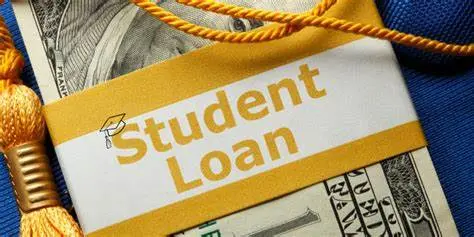Student Loan Consolidation vs Private Loans: Key Differences
Student loan consolidation involves merging multiple federal loans into one, simplifying repayments and potentially lowering interest rates. In contrast, private loans are offered by banks or financial institutions, often with varying terms and higher interest rates. Understanding these key differences is crucial for borrowers to make informed decisions about managing their educational debt effectively.
Understanding Student Loan Consolidation
Student loan consolidation is a financial strategy that combines multiple federal student loans into a single loan. This process simplifies repayment by providing borrowers with a single monthly payment instead of multiple payments to various lenders. Typically, federal student loan consolidation is done through a Direct Consolidation Loan, which can help borrowers lock in a fixed interest rate based on the weighted average of their existing loans.
One of the main benefits of student loan consolidation is the potential for lower monthly payments, which can be appealing for recent graduates who are entering the workforce. Additionally, it often extends the repayment term, allowing for smaller payments over a longer period. However, borrowers should be cautious, as extending the term can also lead to paying more in interest over time.
Exploring Private Loans
Private student loans are offered by private lenders, such as banks, credit unions, and online lenders. Unlike federal loans, these loans are not backed by the government, which means they often come with less flexible repayment options and may carry higher interest rates. Private loans are typically used to cover educational expenses that exceed federal aid limits.
When considering private student loans, borrowers should be aware that their credit history plays a significant role in determining eligibility and interest rates. Generally, borrowers with better credit scores will qualify for lower rates. This can make private loans an attractive option for some students, but it also means that those with lower credit scores may face higher costs.
Key Differences Between Student Loan Consolidation and Private Loans
To help clarify the differences between student loan consolidation and private loans, we have created a comparison chart below:
| Feature | Student Loan Consolidation | Private Loans |
|---|---|---|
| Eligibility | Must have federal student loans | Open to undergraduate and graduate students, credit-dependent |
| Interest Rates | Fixed rate based on a weighted average of loans | Variable or fixed rates, often higher than federal rates |
| Repayment Options | Flexible options including income-driven repayment | Less flexibility, varies by lender |
| Loan Forgiveness | Possible through federal programs | No federal forgiveness options |
| Co-signer Requirement | No co-signer needed | Often required, especially for students with no credit history |
Pros and Cons of Student Loan Consolidation
There are several advantages and disadvantages to consider when opting for student loan consolidation. On the positive side, consolidation can simplify payments, provide access to alternative repayment plans, and potentially lower monthly payments. However, the downsides include the potential loss of borrower benefits such as interest rate discounts and loan forgiveness programs.
Pros and Cons of Private Loans
Private loans come with their own set of pros and cons. The main advantage is the potential for lower interest rates for borrowers with excellent credit. Additionally, private loans can cover expenses that federal loans do not. On the downside, they often lack the flexible repayment options available with federal loans and may incur higher costs over time due to potentially variable interest rates.
Making the Right Choice for Your Financial Future
Choosing between student loan consolidation and private loans involves careful consideration of your individual financial situation, goals, and preferences. If you have multiple federal loans and are looking for simplicity and potential access to income-driven repayment plans, consolidation may be the best option. Conversely, if you need additional funds for your education and have a strong credit history, private loans could be a feasible solution.
Always conduct thorough research and consider seeking advice from financial advisors or student loan counselors before making a decision. Understanding the terms, interest rates, and repayment options will empower you to make an informed choice that aligns with your financial goals.
Conclusion
In summary, both student loan consolidation and private loans have distinct advantages and disadvantages. By weighing these factors and understanding the implications of each option, you can better navigate your financial path after graduation. Remember, the right choice depends on your unique circumstances, so take the time to evaluate your options carefully.



